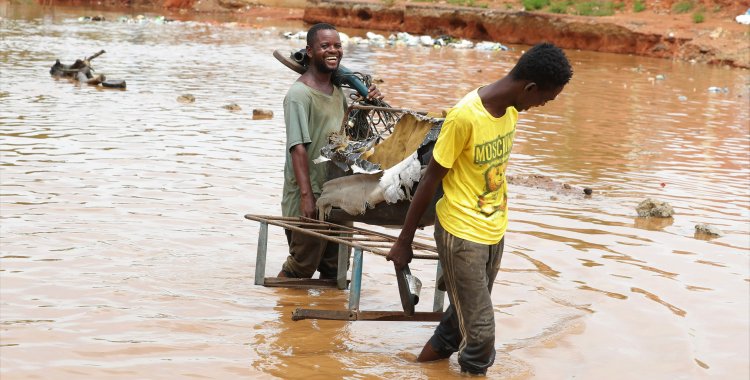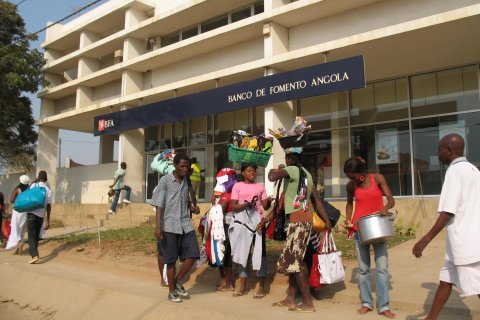Hiring boots or plastic bags, washing feet or collecting "tolls" on improvised bridges to cross flooded areas are some of the activities that can be seen around the city, where the rain has not given a break.
In most neighbourhoods, the population tries to drain the water from flooded houses and streets using buckets and electric pumps and recover some of their belongings among the land and rubbish dragged by the force of the waters, while exploring business opportunities.
Eduardo Diogo, a 23-year-old mechanic and resident of the municipality of Cazenga, one of the most populous in the capital, is the "founder" of the bridge that crosses the drainage ditch of "7th Avenue", charging pedestrians and motorcyclists for passage.
The ditch, where several people have already died and a tide of garbage accumulates that now hides the water, is also a haven for mosquitoes, and houses precarious bridges made of wooden planks, garbage and earth, where passers-by risk shaky crossings.
With prices that vary between 50 and 100 kwanzas, the young man guarantees that he uses the money to buy material to build new bridges, keeping a part for himself, and regrets that despite the complaints made to the government authorities, there are still no solutions for the dangerous trench.
Sérgio Salvador Diogo, 26, is a biker and also protests against the situation: "We are getting frustrated, we are seeing the children, the garbage, there when it rains, the water really goes in the neighborhoods, in the kubicos (houses)", he told Lusa, complaining about the mosquitoes and rubbish in the open ditch. "What I really want is for this mambo to be covered", he appeals.
He says that whoever built the bridge has reason to charge and calls for the youth of the neighborhood to play the role of promoter of the precarious infrastructure also designed for those who want to date: "Our mboas [women] are here. and now strangers who aren't dating and aren't from here really pay 50. We have reason to charge because this bridge is private, it doesn't belong to the State, nobody is stealing here".
Sebastião Francisco, a 69-year-old tailor, also regrets the flooding of the streets in sector 5 of Cazenga Popular, but thanks the help of the municipal administration, which provided electric pumps to complement the manual power of the brooms.
At the entrance to the Kikolo market, one of the best known in Luanda, the misfortune of some also offers opportunities for others who rent boots or negotiate plastic bags for those who want to go to the market where access is completely flooded and muddy.
In the same place there are also those who provide services by washing the feet of passers-by, although with little enthusiasm. "João Lourenço, we are suffering, where are the 500,000 jobs, a job is washing feet?", question some of the women who wash feet.
Since last week, the rains have already caused the death of at least seven people, including three children in the early hours of Wednesday, in addition to falling trees, flooding thousands of homes and falling electricity poles.
For the next 24 hours, the National Institute of Meteorology and Geophysics (INAMET) continues to predict moderate rain for the province of Luanda, which could be locally strong, with the probability of thunderstorms in some municipalities.







